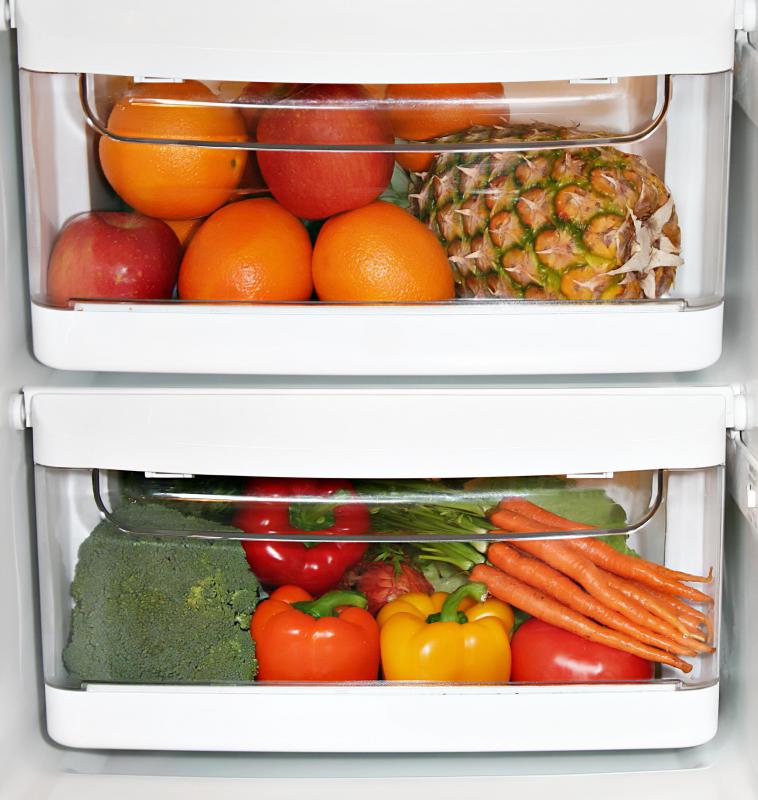At DelightedCooking, we're committed to delivering accurate, trustworthy information. Our expert-authored content is rigorously fact-checked and sourced from credible authorities. Discover how we uphold the highest standards in providing you with reliable knowledge.
How can I Keep a Kosher Kitchen?
Many practicing Jews observe kashrut, a set of laws set out in the Torah, or Jewish Bible. Kashrut discusses which types of foods are allowed to Jews, with foods that meet the requirements being called kosher. Some people like to set up a kosher kitchen to ensure that kashrut is being observed in the home. Establishing a kosher kitchen can be challenging, and you should plan to dedicate several days to it.
Kashrut is quite complex. The basic rule of thumb is that meat, or fleishig, and dairy, or milchig cannot ever be mixed or served together, requiring separate pots, utensils, and plates. Other foods such as vegetables and grains are pareve, which means that they are neutral and can be served with either. Jews following kashrut do not eat fish without scales and clearly defined fins, any animal that does not have cloven hooves, and certain types of fowl. A kosher kitchen will help keep your household kosher.

If you are setting up a new kitchen, the task of making it kosher is relatively easy. Designate separate cabinets for meat and dairy. Store cooking implements, pots, and pans in these cabinets, and mark these tools so that you can see if they are being used for meat or dairy. In the dining room, designate separate cabinets for silverware, plates, and placemats: it helps to get different patterns.

If you have a double sink, designate one side for meat and one side for dairy, and use dish racks to keep dishes from making contact with the sink. Ideally, two cooking ranges should be used as well so that you can ensure separation between meat and dairy. If this is not an option, avoid cooking the two at the same time. Divide the fridge, making sure that meat and dairy containers are tightly sealed so that cross contamination is avoided.

If you are converting an established facility to a kosher kitchen, be prepared to replace some foods, plates, and cooking implements. Start by emptying out the kitchen and scrubbing it down thoroughly. Check with a rabbi to see which dishes, pots, and utensils can be made kosher, usually by scrubbing and boiling. Divide and label the kitchen as above, observing kashrut while you set up and use your kosher kitchen.

Keeping a kosher kitchen can be an important part of religious practice for some individuals. Ensure that all the foods brought into the kitchen are kosher, and keep dairy and meat separate. Make guests are aware of the kosher kitchen, and be prepared to give a quick orientation to anyone using the kitchen for the first time. If unsure about any part of the process of making a kosher kitchen, or concerned about violating kashrut, consult a local rabbi.
AS FEATURED ON:
AS FEATURED ON:
















Discussion Comments
Very good, easy to understand info. Thanks!
Post your comments